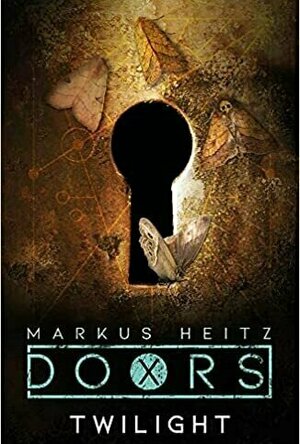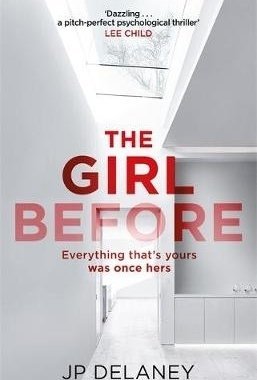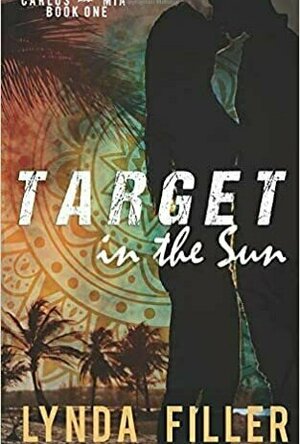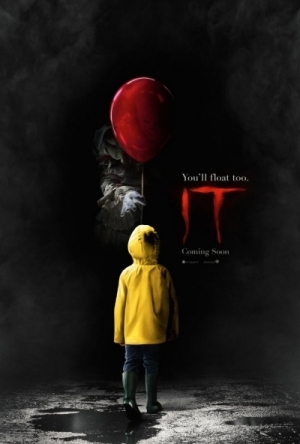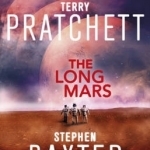
Kung Fu Panda Holiday Storybook
Book and Entertainment
App
★ Featured in "What's Hot" in the Apple App Store iStoryTime brings you Kung Fu Panda Holiday...
Ross (3284 KP) rated Doors: Twilight in Books
Mar 24, 2021
The first quarter of these books is identical, with the damsel in distress being introduced and the team coming together and being given their tasks. At this stage, there is next to no organisation around their approach, it really is simply a bunch of people heading into the unknown and being drastically under-prepared. When the team quickly find the missing and take her back to the surface, the reader is left somewhat taken aback at the speed with which it was resolved. This is nothing compared to how the reader feels when the team go back looking for the real missing woman, simply based on their employer's assistant's momentary mistake that the woman's eyes were the wrong colour. This is not challenged by anyone in the team, who head back downstairs. It's a bigger WTF moment than the Batman vs Superman 'Martha' fiasco.
As with some of Heitz's Dwarves books, I think this suffered from fairly poor translation, as a number of phrases and words just are not clear. At no point did i really know where the team were heading, forwards or backwards, which door they went through etc.
And the promise of heading into the future was very much an empty one. Some members of the team briefly find themselves in near-future Frankfurt and there is a short section of the book which adds no value and has no connection to the rest of the book whatsoever. Thereafter, there is just some cliched mysterious dark maze adventures, with some unexplained conspiracy around the use and beginnings of the doors and their purpose. (I am currently around 80% of the way through the 'Colony' book, having mercifully skipped the first, repeated, quarter, and am starting to realise that there is likely to be an overall story arch that only becomes clear once the reader has read all three books).
This book, and the series as a whole, offered so much potential and teased so much, but this one at least completely failed to deliver for me.
Advance copy received from NetGalley and the publishers in exchange for an honest review.
BookInspector (124 KP) rated The Girl Before in Books
Sep 24, 2020
I found the plot original and I loved all the twists and turns which were going on in the book. Every chapter had something happening and it didn’t leave me bored. The more you go into the book, the more plot thickens, the more twists happen and it really kept me hooked. I think it was really great, that the book talked about really important topics, and the psychological aspects of eating disorders, how parents feel after still birth, parents thought about disabled children or how minimalist sees world. I’m new to minimalism and just briefly checked on it, but after reading this book I’m confused if I really want to know more… I loved that the name “the girl before” had deeper meaning than only finding out Emma’s story, it felt way deeper than it looked. The book itself is easy to read and the writing style was not difficult. The chapters are quite short so it doesn’t drag along. I really loved the ending of the book, which concluded the book really nicely but at the same time left me questioning. So to conclude, even though a lot of reviewers bashed this book, I loved this twisted, fast paced and full of suspense and psychological labyrinths creation and I recommend to try it and decide for yourself.
BookInspector (124 KP) rated Target in the Sun (Carlos & Mia #1) in Books
Sep 24, 2020
While reading this book, I really enjoyed the plot itself. This exotic life in Mexico and the daily struggle, which ordinary people have to go through, really fascinated me. Even though the story was interesting, I missed some twists and turns in this story, it kind of plodded along. The writing style in this publication was really interesting; it was like a diary with this very naive way of writing. The language was very easy to read, but there were some Spanish phrases for which you might need to use some sort of translator. I am not a fan of long chapters as it gets me bored really easy, that’s why I was very happy to see that chapters in this novel are short and quick to read. This book is not very suitable for young people; it does contain a lot of sexual scenes and talks about sex. I really liked that this book discussed the situations which are everyday life in Mexico. The struggles which ordinary Mexicans have to face to feed their families and how easy it is to slip into a criminal’s life. I really enjoyed that author was discussing the drug problems and how it is influencing all people down the trafficking chain. The ending of the book was really well thought through and concluded the book really nicely. When I heard that there is a second book, I was surprised but at the same time intrigued. So to conclude, if you are looking for something related with Mexican drug cartels, exotic and romantic, give this book a go and you might be pleasantly surprised.
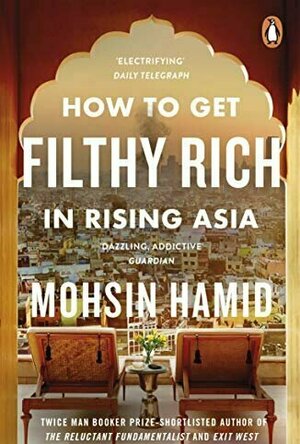
How To Get Filthy Rich in Rising Asia
Book
How to Get Filthy Rich in Rising Asia is Mohsin Hamid's spectacular, thought-provoking novel of...

TopBuzz: Viral Videos & News
News and Entertainment
App
Get the latest in videos, news stories, GIFs and more with TopBuzz, your personalized newsfeed! ...
Chris Hooker (419 KP) rated No Way Home (A Science Fiction Anthology) in Books
Jan 12, 2018
[To Sing of Chaos and Eternal Night] by [Lucas Bale] took me a few days to get past the beginning. The concept of a soldier who has lost all being and is just thought sent to robotic bodies and told to fight the enemy was interesting. As I stated, unfortunately, it was a slow start but the ending was worth the read.
[XE, or People Are Strange] by [S. Elliot Brandis]gave a new meaning to getting away from it all. The main character, Bradley, volunteers to be put in a shuttle to find a new habitable plant. His mission is one way and he is to send a signal back to Earth if it is a safe place. Apparently, though, he is not the first, or only, person on the new planet. I really liked the twist in this story.
[Grist] by [J.S. Collyer] is a futuristic view where one entity has taken control and all others are forced to work for them, often underground. Wyatt was not born into this so he remembers fresh air and sun. He wants to escape and be free again. Just daring to think this way can be deadly and he must know who to trust. The question this story had me asking was what is life worth?
[Merely A Madness] by [S.W. Fairbrother] was one I was really excited to see in this collection because I had read [The Secret Dead] and loved it. [Merely A Madness] did not disappoint in anyway. Earth has become a hostile place but most people have escaped off planet. Hannah loves old earth and Mullen sets up a holiday because he aims to please. This would be like current day people going to a wild west ranch, real but not too real. Things go horribly wrong and Mullen must make a hard choice. This story was one of my favorites by far.
[Revolver] by [Michael Patrick Hicks] was the most overtly political and also one of the most enjoyable. The concept of reality TV and politics preying on the unfortunates is so scary because it is not far from our current reality. I really loved the statement made in this one.
[The Happy Place] by [Harry Manners] was a story of a dream gone horribly wrong. Michael has always dreamed of going to the stars and with his wife this dream becomes a reality as he is chosen to colonize Mars. Years later he realizes his dream may be a nightmare as he begins to lose everything he loves. The only thing that keeps him going is 'the Happy Place', a virtual reality of his memories from Earth, but keeping this secret from those he loves may cost him even more. This is the third work I have read from [Harry Manners] and I love how he handles loneliness and making hard decisions. His characters are always deeper than they first appear.
[Renata] by [Nadine Matheson] is a futuristic spy story wrapped in a mob hit with political intrigue. Yes, I enjoyed this one as well. Kaoru is an assassin who gets his assignments from his brother. His latest target is in the past. This is the assignment that may just kill him.
[Cold Witness] by [A.S. Sinclair] was a mental thriller. John Marshall is sent to check out an abandoned military complex that he is told little about. When he arrives there he hears rumors of strange things involving the final project at the base. Upon arrival he begins hallucinating and his memories begin to meld with others. The question of what is reality is constant throughout.
All the stories were well written and enjoyable. I also liked how each author wrote an "Afterword" that explained a little of how they came up with the concept they did. I recommend this to any fan of futuristic and science fiction.
BankofMarquis (1832 KP) rated It (2017) in Movies
Feb 14, 2018
But...is it scary? Sure...scary enough, but this adaptation of Stephen King's bestseller is much, much more than a scary movie.
One of the best screen adaptations of a Stephen King book, ever, IT tells the story of a group of13 year olds in Derry, Maine (one of the main towns featured in a variety of King's stories). It is 1989 and children have been going missing at an alarming rate. The adults in the town seem impassive about this, and when the younger brother of one of the gang goes missing, this "Loser's Club" investigates. What they find is a horrifying evil at the center of it all.
Like the plot of this film, there is much, much more going on in this film than what that last paragraph suggests, for this story is not only about the mystery of the missing children, it is a loving look back at childhood, friendship, caring and bonding. Think of this film as STAND BY ME meets...well...a killer clown.
And the clown IS killer. As played by Bill Skarsgard (TV's THE CROWN), Pennywise The Dancing Clown is slyly sinister, drawing the children in as a spider would a fly. It is only when the children are close (and alone) does he drop the guise of niceness and pounce. This is an intense and terrifyingly terrific performance, keeping the fine line between realism and camp (a line that Tim Curry trounced all over in the TV Mini-series version of this material in the 1980's).
I'm a big fan of Stephen King's writing (having read nearly all of his books and short stories) and I walked out of the theater thinking "finally, someone figured out the right way to make a Stephen King thriller work on the screen" and that someone is Director Andy Muschietti (MAMA). He guides this film with a strong hand, not wavering in his vision or sense of purpose as to where (and how) he wants this story to go. He let's the young actor's lead this story, with Skargard's clown pouncing every now and then. This works well, especially when infusing something that is sorely lacking, typically, in these types of films - humor.
And the humor, mostly, falls into the hands of Richie Tozier (Finn Wolfhard, STRANGER THINGS). He is an absolute bright spot injecting just the wrong (or maybe it is right?) comment in a tense situation, just as a 13 year old boy would do. As part of the "Loser's Club", he holds a bright spot in keeping things together when the mood threatens to get too grim or dire. And grim and dire is what is following this set of "Loser's", a veritable "who's who" of loser stereotypes. There is the "fat kid", Ben Hanscome (Jeremy Ray Taylor, ANT-MAN, in a sweet performance), the "always sick kid with the overbearing mother", Eddie Kasbrak (Jack Dylan Grazer), the "Jewish kid", Stanley Uris (Wyatt Oleff) and the "Black Kid", Mike Hanlon (Chosen Jacobs).
But the heart and sole of this film is the two main leads of the "Loser's Club", Bill Denbrough (Jaeden Lieberher, star of two criminally under-viewed gems MIDNIGHT SPECIAL and ST. VINCENT) and Beverly Marsh (Sophia Lillis, a relative newcomer that bears watching in the future). Both are harboring deep, emotional scars - Bill blames himself for the death of his brother by Pennywise and Beverly is (wrongly) viewed as a 13 year old slut by school rumor and innuendo and is sexually harassed by her father. The relationship between these two and the rest of the Loser's Club is the real treat of this film and the actor's are up to the challenge to draw us in and care about what happens to them when they are, ultimately, separated and confronted by Pennywise.
I was surprised by how little graphic gore there was in this film (though there is plenty of blood) and there is a little too many "jump scares" for my taste, but these are quibbles for a very good, very intense "scary film".
I floated out of the cinema after seeing this film You'll float too.
Letter Grade: A-
8 (out of 10) stars and you can take that to the Bank (ofMarquis)
Phil Leader (619 KP) rated The Long Mars in Books
Nov 20, 2019
The usual characters are here. Lobsang is less in evidence than previously, despite driving what is the core of the book. Joshua is also a little sidelined as his story is tied closely to that of Lobsang. The bulk of the actual pages are concerned with Sally Lindsay and Maggie Kaufmann as they set off on their own voyages of discovery on the seemingly infinite copies of Earth and - not too much of a spoiler since it's in the title - Mars.
Whereas the previous books have essentially had one thread of a story around which the characters revolve towards some sort of end. This book seems more as if the authors couldn't really decide what they wanted to write about.
Should they write about more versions of the Long Earth, more fantastic worlds and lifeforms? Or perhaps investigate what has really been happening at Happy Landings, the seemingly too perfect town which existed long before Step Day? Or perhaps you are Stephen Baxter and can't resist going to Mars and showing many stepwise possibilities for that planet?
Rather than focus on one of these, all three are covered.
Maggie Kaufmann takes a brand new Twain far beyond the current limits of exploration into completely uncharted - and very strange - worlds. She must deal with the crew during their long trip, a surprise guest and aims to find out what happened to a previous expedition that vanished. Once again Pratchett and Baxter dig up some potentially different outcomes for both life on Earth and the planet itself, although many of the worlds are skimmed over and this part does get a little repetitive - another world, another odd ecology. This thread did feel a little like filler, there for those who want to see what might happen at the extremes of the Long Earth, although events do tie in with Lobsang's story.
Lobsang (the omnipresent super computer) has become concerned with matters of existence and what might come after. In particular is the human race evolving? He asks Joshua to help out and discover if there is any evidence for a breed of super human evolving as Lobsang theorises there must be. It seemed to me this is the real story of the book, a query on what would happen if a vastly more intelligent form of humanity evolved as a step change rather than a gradual one. What would they do? Would the rest of humanity accept them or feel threatened by them? The thread is short - barely more than an essay - and takes a good while to work through but provides the ultimate ending to the book.
Meanwhile, Sally Lindsay finds herself at The Gap, preparing to visit Mars, part of some mysterious quest for 'something' by her father. Here Baxter's history of writing Mars colonisation stories (they even get a mention) comes to the fore as the possibilities of a Long Mars are explored. In the real world Mars is cold, arid and inhospitable but there may be the odd chance for life to have developed. What would this be like? Again we have many different worlds although these are skipped through a little better than the Maggie Kaufmann Long Earth voyage and seem a little less repetitive - or where there is repetition it is more interesting than mundane.
Overall this is a good read in the series, probably a little better than The Long War but again lacking the coherence and sheer enthusiasm of The Long Earth (perhaps inevitably). As a work of science fiction it works well - the broad brush 'imaginary worlds' of the Long Earth and the Long Mars juxtaposed by the more existential investigation into human evolution.
Would I read a fourth installment? Undoubtedly, there are stories yet to be told. Would I recommend this book? Only if the recommendee had enjoyed the previous two books.

Trim & Tone by Poworkout
Health & Fitness and Lifestyle
App
The app Poworkout Trim & Tone will help you tone it up and get a tight body. Poworkout means...
